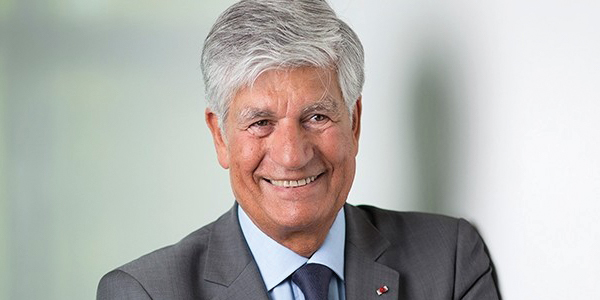« Innovating is a very humane endeavour » – Laurent Bigorgne
IMPACTS AND INNOVATING WITH A CONSCIENCE
In his book, Alain Conrard sheds new light on innovation with a global and innovative approach addressing the related concerns caused by this phenomenon.
This approach tackles the many different impacts of innovation, both the positive and negative ones, and sometimes both at the same time. Impacts on our daily lives, on our thought process and on the ecological balance. A new reality that gives innovation a pivotal role and a tremendous transformation dynamic that affects all aspects of society.
With that dynamic and power come responsibility and duty. Innovators need to ensure that they engage in responsible, including socially responsible, innovation initiatives from now on. Alain Conrard is a strong proponent of ethical responsibility when it comes to innovation, a must-have complement to an innovation culture that is still, for a large part, in the making.
LAURENT BIGORGNE’S POINT OF VIEW
After Jacques Attali (writer and President of Positive Planet), Maurice Levy (Chairman of the Supervisory Board of the Publicis Groupe), Carlo Purassanta (President of Microsoft France), it is now Laurent Bigorgne, Director of the Montaigne Institute, who shares his insights with Alain Conrard on questions related to the impacts, ethical responsibility and the social conscience of innovation.
Innovation affects employment rather radically and directly. Laurent Bigorgne, referring to Schumpeter’s “creative destruction” concept underscores that while innovation destroys jobs because it disrupts everything in its path also creates plenty of new jobs, even if, at first, it is hard to appreciate.
By highlighting the positive impacts of innovation, Laurent Bigorgne explains that he considers the many entrepreneurs or investors he gets to meet, as active contributors to the innovation dynamic rather than passive onlookers.
When talking about data, Laurent Bigorgne makes it a point to show that data is just as much a technical tool as a political one, “Data also means power and domination. It leads to sovereignty.” He puts forward that the power shift brought on by data acquisition and data management should be geared toward fostering progress and serving democracy.
Reacting to Alain Conrard’s statement on the need to not be passive onlookers and his newly coined term “utributor,” Laurent Bigorgne adds that citizens are also very active players through their consumption mode, “there is no stronger force than that of the market : citizens are also consumers.”
Laurent Bigorgne finally discusses the challenges of innovation and ethical responsibility with Alain Conrard, expounding on the Human Being’s place (and limitations) within an ecosystem where the technological advances of machines are ever growing.
The director of the Montaigne Institute concludes this captivating exchange of views with a definition of what the DNA of a great innovator is made of, “A combination of wisdom and audacity that sets the great innovators apart from the rest. There is that crazy and wild streak and also that wisdom because innovating is a very humane endeavour.”



